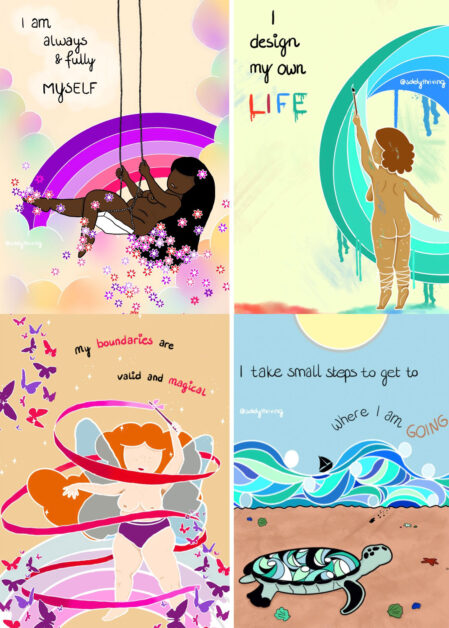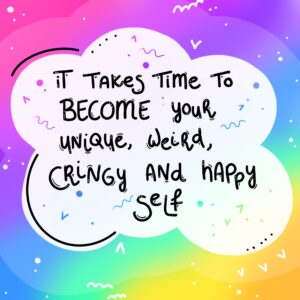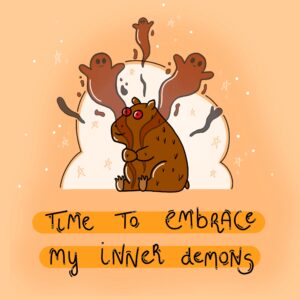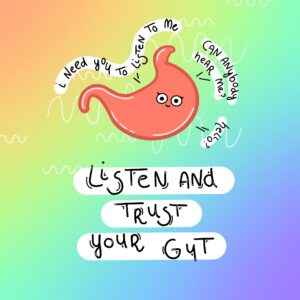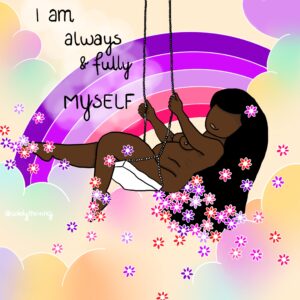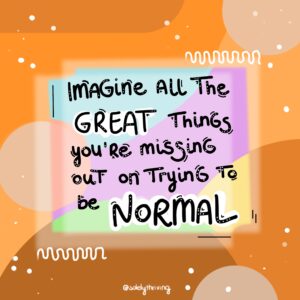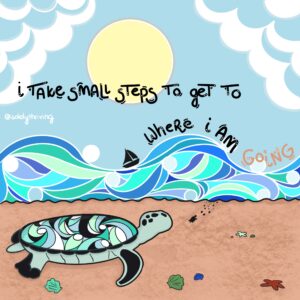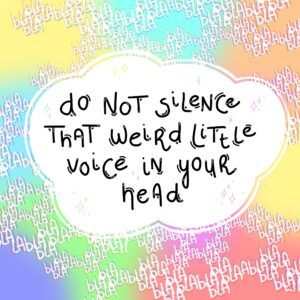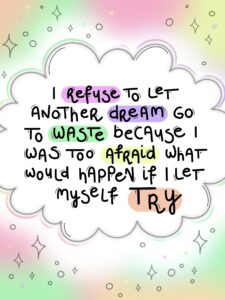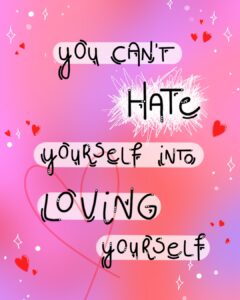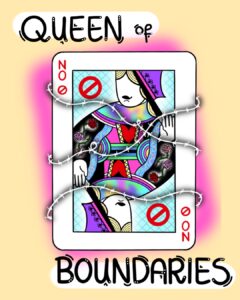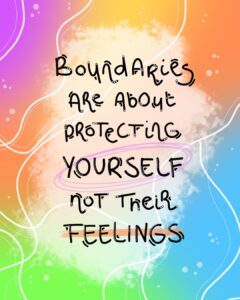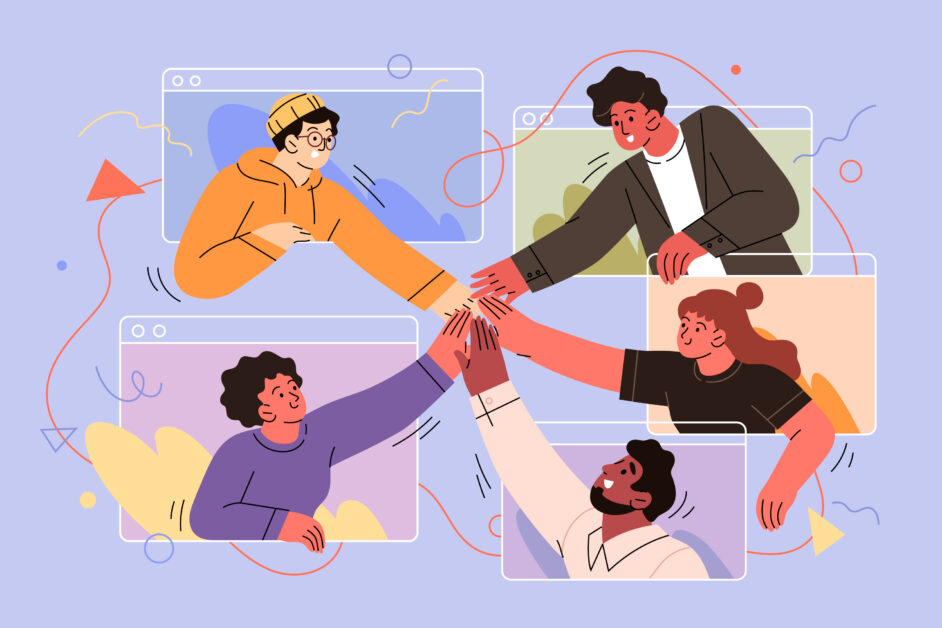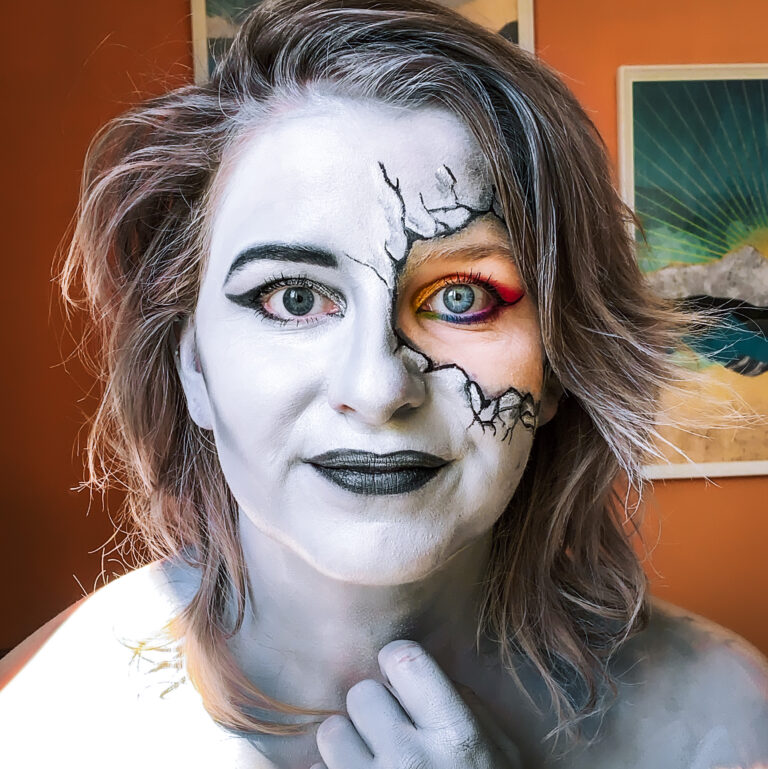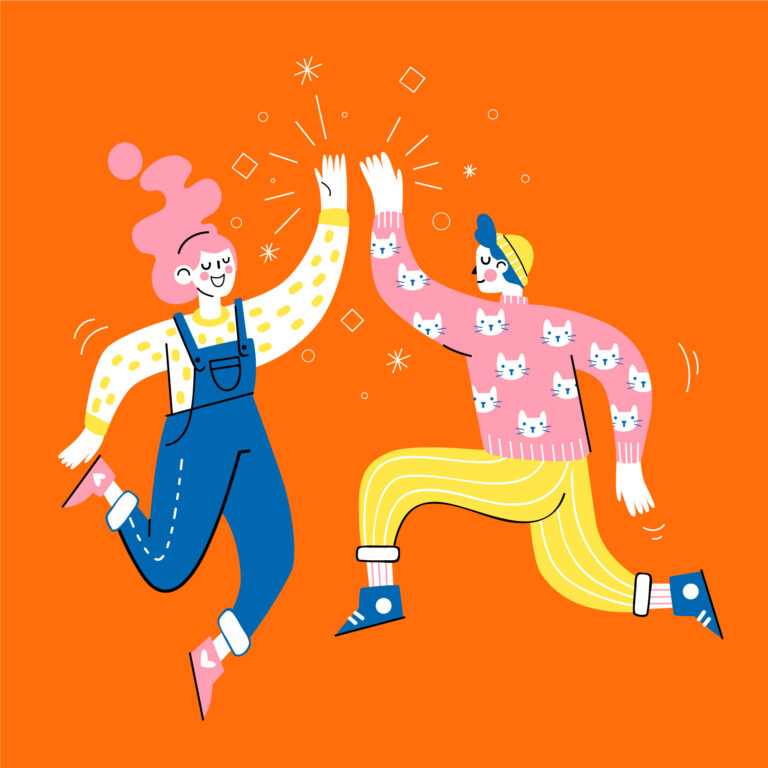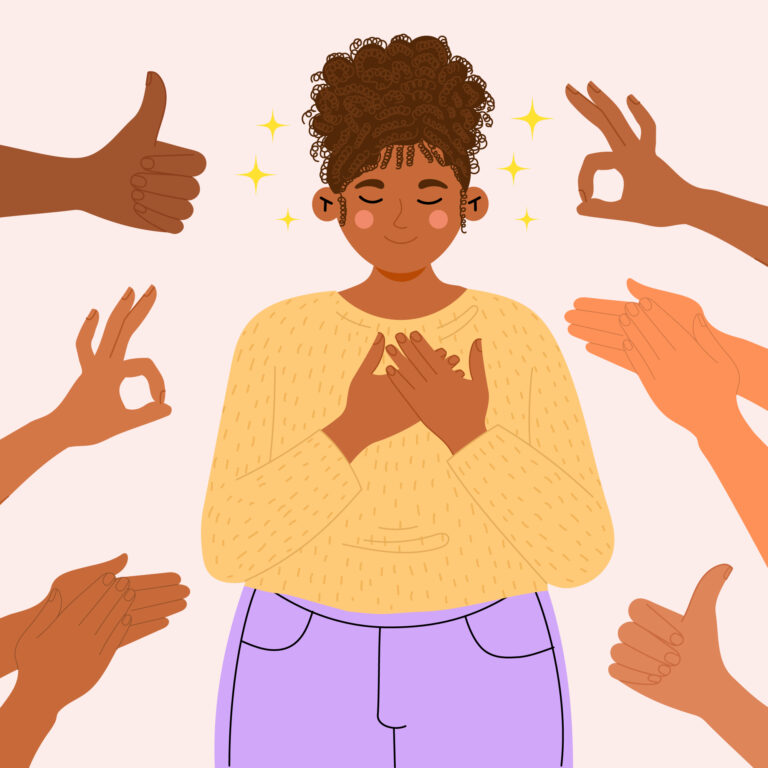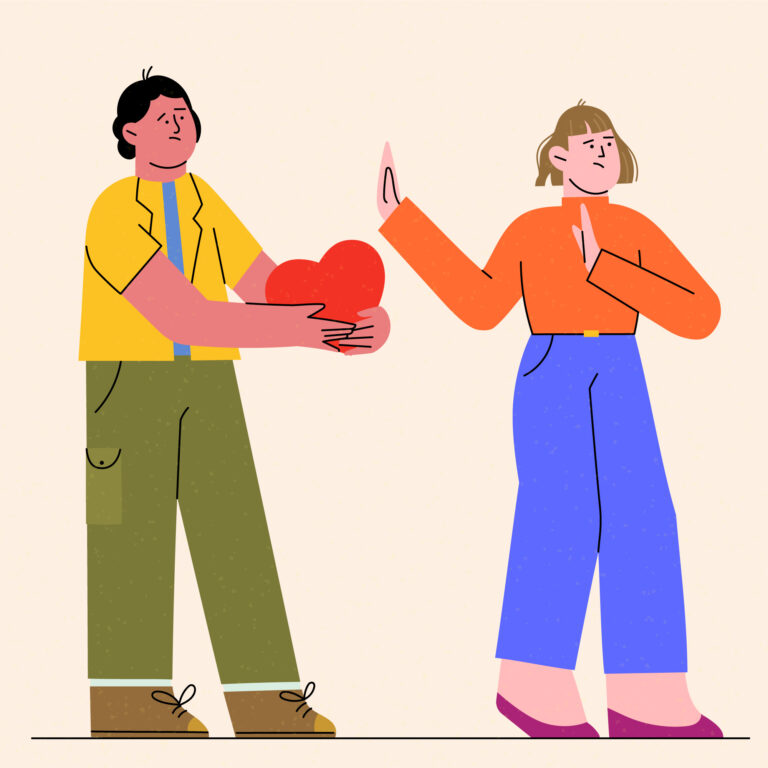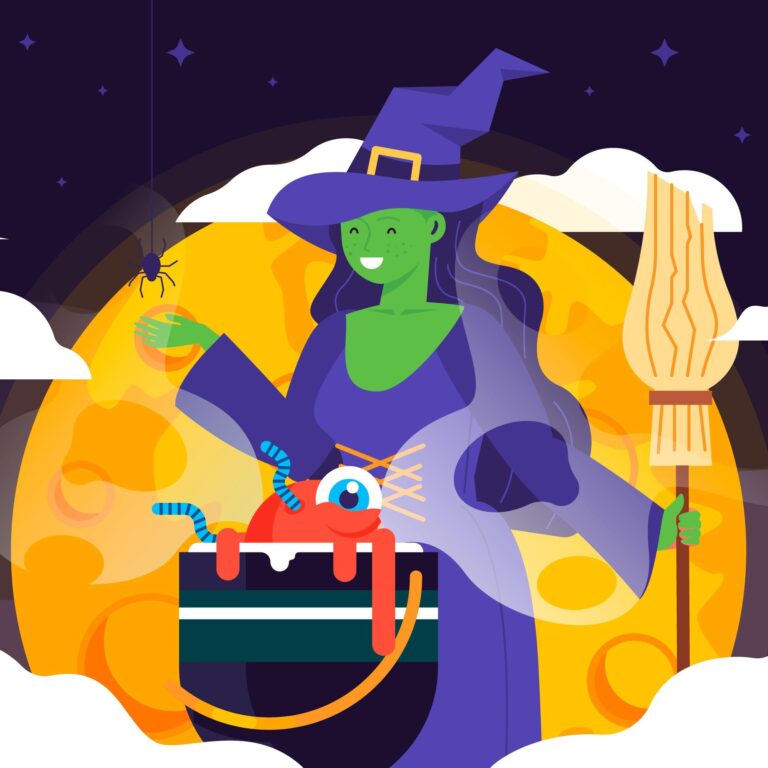Intuition: can you actually trust yourself to be right?
Is your intuition trustworthy or is it a manifestation of your biases?
Do you know what your intuition sounds like? If you’re like me, then you have no idea what that ‘little voice’ that is supposed to guide you, entails. Cause I have no freaking clue. I have never known what my intuition feels like – let alone sounds like – and I have no idea if I have ever listened to them. What I definitely do know is what my anxiety sounds like. Or are they actually the same thing? Let’s find out.
Intuition is such an abstract subject; one that everyone has heard about, but that no one can actually really fully explain. When I read ‘Untamed’ by Glennon Doyle, she described her intuition as a voice inside of her that would get louder when she drowned out all the noise around her. Religious people would probably explain intuition through the lens of god. ‘Trust your gut’ is a saying frequently used.
But what if you don’t know how to listen? Or even worse: what if there are plenty of reasons to not trust any of the things your gut is telling you (I have IBS, my gut is always betraying me!) In this blog we’re going to make sense of the concept of intuition and even explore ways to actually listen – or not.
Short summary for quick readers
- Intuition is a feeling you get in a certain situation and it comes from your subconscious notifying your conscious of previous experiences you've had in the past that might help you interpret the current one.
- Intuition is part of your survival mechanism. But there are things that can influence your intuition and steer you wrong.
- Anxiety can make you scared of situations when you don't have to be: your brain is more likely to label unthreatening situations as a threat.
- Being a woman also influences your intuition and makes you less likely to trust it since women are taught that they can't trust themselves.
- Bigotry makes your intuition less reliable too. That gut feeling you have can be influenced by biases and can make you doubt things just because a person from a racialized group is involved.
- But you can train your intuition or at least learn when to rely on it. You can use your intuition when you're not overly emotional. That is when you're better at judging situations.
- Your intuition actually strongest when you're dealing with a subject that you're a master in. Experience creates a stronger and more accurate gut feeling. And that is tied to environment too: your skills don't just transfer to different environments.
- Instinct isn't the same as intuition: instinct is evolutionary: something you're born with. It helps you survive, fe, by feeling disgust when seeing spoiled food.
* Free wallpaper download * Free wallpaper download * Free wallpaper download
* Free wallpaper download * Free wallpaper download * Free wallpaper download
INTUITION ISN’T MAGIC
According to modern day psychology, intuition really isn’t anything magical. It’s not witchcraft and it’s not some spiritual experience. Just like every other type of human behavior, it can all be explained by taking a good hard look at your brain.
Intuition is what happens when your subconscious notifies your consciousness of previous experiences you’ve had that might be helpful in this instance. When you experience something, and the event made enough of an impact, it is stored in your long-term memory. And that means your subconscious can retrieve it whenever needed.
Information like that can come from anywhere; it can be a movie that you watched, a podcast that you listened to, or something that actually happened to you – anything experienced by your senses can be valuable information that might come in handy later and is used to create that thing we call intuition.
When you find yourself in the midst of a new – and therefor uncertain – situation, your brain immediately shifts into ‘protection’-mode. Because the situation is unfamiliar to you. And that means you don’t know if you’re going to be in danger soon.
So your brain does a little assessment, using previous experiences to figure out whether or not the situation might be dangerous, or at least slightly off. And even though you are in a completely new situation, your brain is going to open those mental drawers to find things that – sort of – look like the thing you’re facing right now.
THAT GUT FEELING
That is how your intuition kicks in.
It gives you that feeling of ‘something doesn’t feel right’ when you’re on a date. Or the ‘maybe I shouldn’t take the job’ after an interview. Those feelings; the positive or negative feeling you can’t quite explain but you also can’t seem to shake, is what you’re intuition – supposedly – does.
So no, intuition is not magic or some superpower that you acquired after a bite by a radioactive overthinking spider. It’s like the magnetic poetry that you can use to create random sentences on your fridge; a collection of random memories that somehow match your current situation in some way. Even if you’re missing a few verbs or articles.
Let’s say you’re on a date and you’re trying to figure out whether or not your date is a good person. If they are someone you could actually see yourself in a relationship with. You have never met them. He’s also very different from the guys you’ve been dating before. But your brain is working overtime to find all the information it can find on the way this man dresses, the way he looks at you, the things he says; and what it all means.
Intuition is the complex and subconscious version of a child burning his hand on the stove and slowly figuring out that hot equals pain. Intuition is a basic skill that we all have.
But we don’t all know how to listen to it.
And the reason why is because there is a lot of white noise on that same frequency. White noise that goes by many names.
THAT INFLUENCES YOUR INTUITION?
Intuition serves a pretty basic function: it is meant to keep you alive. Pretty useful, right? But there are some reasons why intuition might actually be working against your best interest.
Reasons why you should maybe not blindly follow your intuition.
For me, the loudest voice of all is my anxiety.
It basically dictates everything I do. It tells me what I did right, but mostly what I did wrong. And it tells me how I should act and how I’m not good enough in basically every situation. And if you have the voice of anxiety drowning out the weak voice of your intuition, it might be hard to distinguish the two.
Because your brain basically opens the same drawer in every situation. The ‘what if’-drawer. The ‘everything is a threat’-drawer. Anxiety is running around pushing all the buttons trying to make everything alright while basically destroying everything in the process (thank you, Inside Out 2 for the great visual metaphor for anxiety).
For me, this is the case for my anxiety-filled brain. But it works in similar ways for other mental disorders too. When you are struggling mentally, your intuition is always influenced by the voice of that disorder. Unless you can find ways to drown it out. Through hard work in therapy, for example.
But being aware of how your intuition can be skewed, is a good first step.
WOMEN’S INTUITION
Another one of the distorters that messes with your intuition, is internalized misogyny. If you were raised and socialized as a woman, you have probably never learned to actually trust any decision you have ever made. Chances are you were taught to listen to other people and to question every instinct you’ve had.
Unfortunately you’re not alone.
Women aren’t believed whenever we bring anything up – whether it’s assault or just a job-related suggestion in our place of work. And if you learn that your opinion or feelings as a woman don’t really matter, how will you ever learn to trust yourself?
And we haven’t even discussed the fact that our feelings are constantly dismissed. Cause we are too emotional, we nag too much, we’re too dramatic, and so on. So how are you then expected to actually know whether or not that gut feeling is the right feeling to have? Cause we’re probably hormonal, right?
But internalized misogyny doesn’t stop there. Because it can also manifest itself as jealousy, which we then mistakenly label as intuition. But no, Linda from accounting isn’t a bad person just cause you had a ‘feeling’ about her.
You just don’t like the fact that she’s pretty confident and doesn’t care about what other people think.
It might be time to tackle that in the privacy of your own brain – don’t worry, I have a blog for that too.
The most surprising thing of all about internalized misogyny? Research has shown that a woman’s intuition is actually more accurate than men’s. Just cause we are conditioned to be more aware of our surroundings. And that means we can interpret the things that happen around us better than men can. It’s like a collective trauma-response, passed on through generations of women. Good for us!
BI-GUT (GET IT?)
The last big thing that makes your intuition less reliable, is another one passed down through generations. Thoughts and feelings that find their origin in a time long gone – but not forgotten. Because what happens when that little voice inside your head, that feeling in your gut, responds differently when there are people involved who don’t look or think like you?
A lot of people think that, because they view intuition as this magical thing, your intuition can do no wrong. That there is no bias involved. But as we have learned, your intuition is your creation.
And that means it has the same biases you have – probably even more.
Your intuition might actually still be a bigot.
Because even though we are working hard on fixing our blind spots and prejudices, our intuition usually responds from a more primal place, meaning your intuition might still revert to racism, or some other bigoted viewpoint.
In some instances, your intuition is steering you away from the ‘right’ path. Especially if you’re a white person raised in a predominantly white community with a very limited experience of life. Meaning that, in those instances, you shouldn’t actually trust that gut feeling that everyone has been telling you to rely on.
Because you might judge someone way too harshly or even put them in danger because you listened to the little racist voice in your head.
INTUITION IS A SKILL
So, where does this leave us? Is intuition completely useless?
No. I don’t think it is.
But you do have to know how to use it. Because in a lot of situations, intuition is your best friend. Especially when it comes to making a quick judgment about whether or not to get into a car with an uber driver.
Professor Joel Pearson, a psychologist specialized in intuition, has made a short list of tips that can help you use – and train – your intuition to work for you.
Because just like everything we do, intuition is a skill that we can improve. And that way it might actually become your superpower.
1. SELF-AWARENESS
The best time to use your intuition, is when you’re not experiencing either overly positive or negative emotions. Being emotional can really mess with your ability to objectively judge the situation. Being emotional doesn’t help in making an informed decision based on actual knowledge and experience instead of your feelings. If you want to become more self-aware of your emotions, I can help: I have a blog on meditation that can teach you how.
2. MASTERY
Make sure you have experience with a certain subject.
Mastery is the best skill to improve your intuition because: the more accurate experience and knowledge you have when it comes to a certain subject, the higher the chances that you make the right choice. For example: if you’re a rock climber that just started out but is somewhat of a natural, your intuition might warn you about safe or dangerous climbing routes to take. The chances of your intuition being right, are very low when you’re still a novice.
No matter how in touch you are with your feelings.
When you read about rock climbing, practice, watch others do it, talk about it with experienced climbers and simply spend a lot of time mastering that skill, your intuition will get better and better at predicting outcomes. But mastery is still related to a very specific skill. Just because your intuition is now skilled in the field of rock climbing, doesn’t mean you can trust that same intuition when it comes to hiking or parkour.
3. INSTINCTS AND ADDICTION
In order to listen to your gut, you first need to know what you’re actually trying to hear.
Instinct is not the same as intuition.
I know, I didn’t know that either. According to Pearson, instinct is something you are born with. It is more of an evolutionary ‘intuition’, if that makes sense. It is the urge to do something your body needs to do in order to survive. Like eat or drink.
It is a little more obvious than intuition – and easier to pinpoint.
But addictive triggers could also mess with your intuition. Is it intuition when your gut tells you to drink more even though you’re already pretty buzzed? Addictive behaviors are especially hard to distinguish from intuition, but are definitely important to differentiate.
4. LOW PROBABILITY
The worst time to try and use intuition to rationalize your way out of a situation, is when it comes to numbers and logic.
When numbers are involved, and we have to guess the probability of something happening, solely based on numbers and feelings, we’re pretty bad at predicting the outcome.
So leave the calculating to an actual calculator and don’t trust your gut when you’re trying to play a game of chance. You’re going to lose (what are the chances?)
5. ENVIRONMENT
This one is connected to the subject of mastery. Because environment plays a part in whether or not your intuition is actually accurate. If you have mastered a skill in a certain environment, it doesn’t mean that you will actually be able to make the right calls in a different environment.
Intuition is all about associative learning.
And associative learning is context specific.
If you have never heard of associative learning, then let me help you: this type of learning depends on two stimuli that are presented together. When this happens over and over again, an association is formed (think Pavlov’s dog).
So when you’re learning a new skill, you’re learning it in a very specific context. For example, if you are a runner, and have always been running track, you have great intuition when it comes to running track. But as soon as you start trail running, your intuition can’t be trusted. Because that environment is foreign to you. You don’t know how your feet and legs respond to the new terrain. And you have no knowledge of how gravity comes into play when you’re running down or up a hill.
If you want to train your intuition – or know when to trust it, you have to take the environment into consideration.
SOME PARTING WORDS
The truth is: after writing a whole blog post about it I still don’t know if I know what that voice inside sounds like. But I do know that there are ways to learn how to listen to it. To find out what your intuition sounds like and to train it – to make it into a useful resource that could help you make important decisions in your life.
Not everyone is able to listen to their intuition and like I said: there are definitely times when we shouldn’t. Because a lot of the time we’re in situations that don’t actually match the knowledge or experience you’re currently having. Or sometimes, the knowledge or experience you had was actually wrong.
But that doesn’t mean you can’t improve your intuition. That you can’t learn how to listen. Because if this blog has taught me anything, it’s that it is possible. Just like you’re improving yourself. You and your intuition can evolve together. Beautiful.
So let’s work on drowning out all the outside – and inside – noise to actually listen to our gut. To make sure our intuition’s views match the views we have, and to actively use that feeling to create a better world.
I know you can do it; I feel it in my gut.


